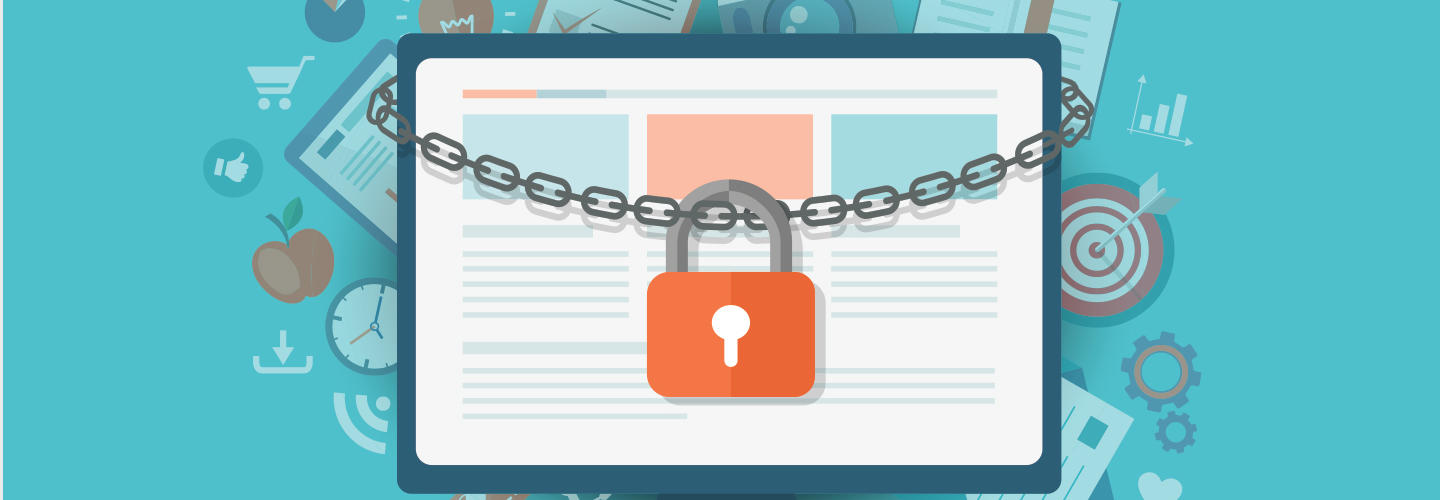Hello!
We all want to grow a healthy and thriving business. Getting there, however, takes dedication, preparation, and protection. You’ll need to cultivate a security solution for your scaling business data if you want to support healthy revenues.
 But cybersecurity isn’t exactly simple. In a world of compounding data threats, you’ll need to optimize your information with the best tools and practices. This means learning, bringing in experts, and building a business model that prioritizes data security.
But cybersecurity isn’t exactly simple. In a world of compounding data threats, you’ll need to optimize your information with the best tools and practices. This means learning, bringing in experts, and building a business model that prioritizes data security.
With the right approach to data protection, you’ll be able to seamlessly scale your business while maintaining the integrity of your customers’ information. This is vital when it comes to operating in a global and digital economy. So explore these tips and tricks for securing data as your business grows.
Preparing Secure Data
There are few items as important to business reputation as the integrity of data. Without a focus on protecting customer or user information, you make yourself liable to expensive and damaging data breaches. These can come in the form of a targeted malware attack or even a slip-up in internal data hygiene. But the results are the same.
Leaked private information causes massive problems for responsible businesses. For instance, Adobe experienced a data breach back in 2013 that impacted 153 million user records. This led to a lawsuit, and later, Adobe was ordered to pay its customers back $1.1 million due to its failure to maintain fair business practices and uphold the Customer Records Act.
Failing to plan for data security can lead to the same kinds of consequences for you, and chances are your business has a lot fewer resources than Adobe. Without comprehensive protection, you run the risk of having to pay out millions in damages, not to mention the customers you’ll drive away. To avoid a financial or reputational disaster, prepare for data security now. Then, you can better protect your customers as you grow.
Here are a few strategies for improving data security through effective preparation.
1. Know your data
When building a startup from scratch, all kinds of considerations will take up your time and workload. Data protection should be a central aspect of this preparation, and that starts with understanding the many types of data you’ll work with in the course of providing products or services to the public.
This doesn’t just mean qualitative versus quantitative data. All kinds of information will require care and sensitivity, while some carry legal protections as well.
 Here are just a few data types you’ll need to protect as you grow your business:
Here are just a few data types you’ll need to protect as you grow your business:
- Human resources data
- Financial information
- Medical data
- Cloud and physical back-ups
- Identifying information
Knowing which data to keep safe is a great place to start as you plan your business model. Growth will require data accumulation, so determine now what information you’ll need to collect. This will also be influenced by local regulations.
2. Understand the regulations
To prevent legal problems as well as reputational blunders, an awareness of the regulations that apply to the data you use is necessary. Different rules apply to different markets, but it is a good idea to try to accommodate as many data protection regulations as possible so that you won’t have to change your business model too much in the event of new legislation.
 These are the key data protection guidelines that you’ll need to have an understanding of as you grow your business into new territories:
These are the key data protection guidelines that you’ll need to have an understanding of as you grow your business into new territories:
• GDPR: the General Data Protection Regulations dictate that companies must follow a set of principles to keep data safe or risk fines and penalties.
• FTC Act: the Federal Trade Commission in the U.S. protects against “deceptive trade practices” and enforces data protection.
• CCPA: the California Consumer Privacy Act requires companies to inform users how their data is being tracked and used.
Depending on the location of your business one or more of these laws could apply to you. However, it’s a good idea to meet their requirements now so that you can eventually operate in these markets uninhibited. But it will be harder to make a clear plan for following regulations unless you first set clear business goals.
3. Set your goals
Your ability to protect data as you grow depends on the goals you set now. In planning for scalability, you must apply thorough and specific targets, or else you run the risk of missing needed data protections for an evolving business. A good rule of thumb for any burgeoning entrepreneur is to apply the SMART model when setting goals.
This consists of targets that are:
• Specific — Describe the details of your intended target list and the data you’ll need to get there.
• Measurable — Set exact metrics for data storage and protection that can be measured as you grow.
• Achievable — Ensure your plan for data protection is reasonable, including a contingency for a data breach.
• Relevant — Make sure the data you collect is necessary for the functioning of your business.
• Timely — Set a timeline for meeting data storage thresholds and building in protections.
With SMART goals, the data you need to cultivate and secure becomes more transparent. This will make evolving your protections easier as you scale.
Once you have taken these preparatory steps for securing your data, then it’s time to get some expert help.
Consulting The Experts
 Data can be a highly technical and complicated tool to work with. Because of this, you’ll need to find means for managing your business and customer information with ease and accessibility.
Data can be a highly technical and complicated tool to work with. Because of this, you’ll need to find means for managing your business and customer information with ease and accessibility.
It might be time to consider hiring a data or cybersecurity professional, but at the very least, you can use the software platforms available to you to help you keep your data secure and usable.
Here are some helpful strategies for protecting your data through consulting with expert people and systems.
1. Find help
First, explore all your options for securing data through professional services. You could go the in-house route and build a cybersecurity team of your own, or you could outsource key aspects of data protection to qualified and experienced third parties.
For an in-house expert, you need someone who is experienced with data architecture and cybersecurity. The right IT professional will understand end-point protections and governmental regulations to help the team keep data safe as your business grows. These professionals are in high demand, however, so budget for a substantial salary and benefits.
Alternatively, third-party data services allow you to host your information on a cloud platform. From here, the host company takes care of much of the cybersecurity efforts, backing up information and securing it through dedicated end-point protections. Not all these companies are equally effective, however, so do your research.
2. Use software and services
 The right software and digital service tools can be instrumental in building a data-safe inbound marketing strategy.
The right software and digital service tools can be instrumental in building a data-safe inbound marketing strategy.
These tools offer all kinds of comprehensive data management features with the added benefit of artificial intelligence analysis.
The result is automated protection of data all through the systems you use to manage that data.
Here are some of the software types that can help you secure a growing database:
- Cloud-storage backup programs
- Data categorization and encryption tools
- Firewalls
- Virtual Private Networks (VPNs)
- File transfer and management systems
With the right help and tools, data protection will be all but effortless. In the course of finding the right help, however, you must avoid scams.
3. Avoid scams
 The data risks you encounter will center in large part around human error. Weak passwords, scam links, or social engineering efforts can all derail the efforts of any growing business. This makes awareness of scams, malware, and phishing a requirement of data protection.
The data risks you encounter will center in large part around human error. Weak passwords, scam links, or social engineering efforts can all derail the efforts of any growing business. This makes awareness of scams, malware, and phishing a requirement of data protection.
To better mitigate the risk of human error, you’ll want to implement data security training across your organization, mandate features like two-factor authentication for logins, and reiterate the importance of vetting your partners. Influencer fraud, for instance, is a type of scam that involves affiliates misleading a business. It cost companies $1.3 billion in 2019 and risks data integrity whenever it occurs.
Avoiding all kinds of data scams is one of the most important things you can do to protect your data as you scale. Train your employees and understand the risks. Then, you can develop a data protection strategy that grows as you grow without falling to modern threats.
Implement These Tips to Protect Data
In the course of developing and scaling an effective business, you’ll encounter all kinds of challenges. Data protection is one of these challenges, and you must succeed. Fortunately, there are plenty of tools and best practices that you can apply to the protection of all your business information.
From streamlining your content marketing to converting greater numbers of leads, you’ll generate massive amounts of data. Keeping this data safe is essential when growing a successful venture, so prepare your strategy and consult expert help as you evolve your business. No strategy can be 100% effective in protecting data, but by following these tips, you’ll improve your outcomes.
Learn the data types and regulations, find the best software, and avoid scams as you navigate your data strategy. A better business model awaits.
Thank you!
Subscribe to our newsletter! Join us on social networks!
See you






